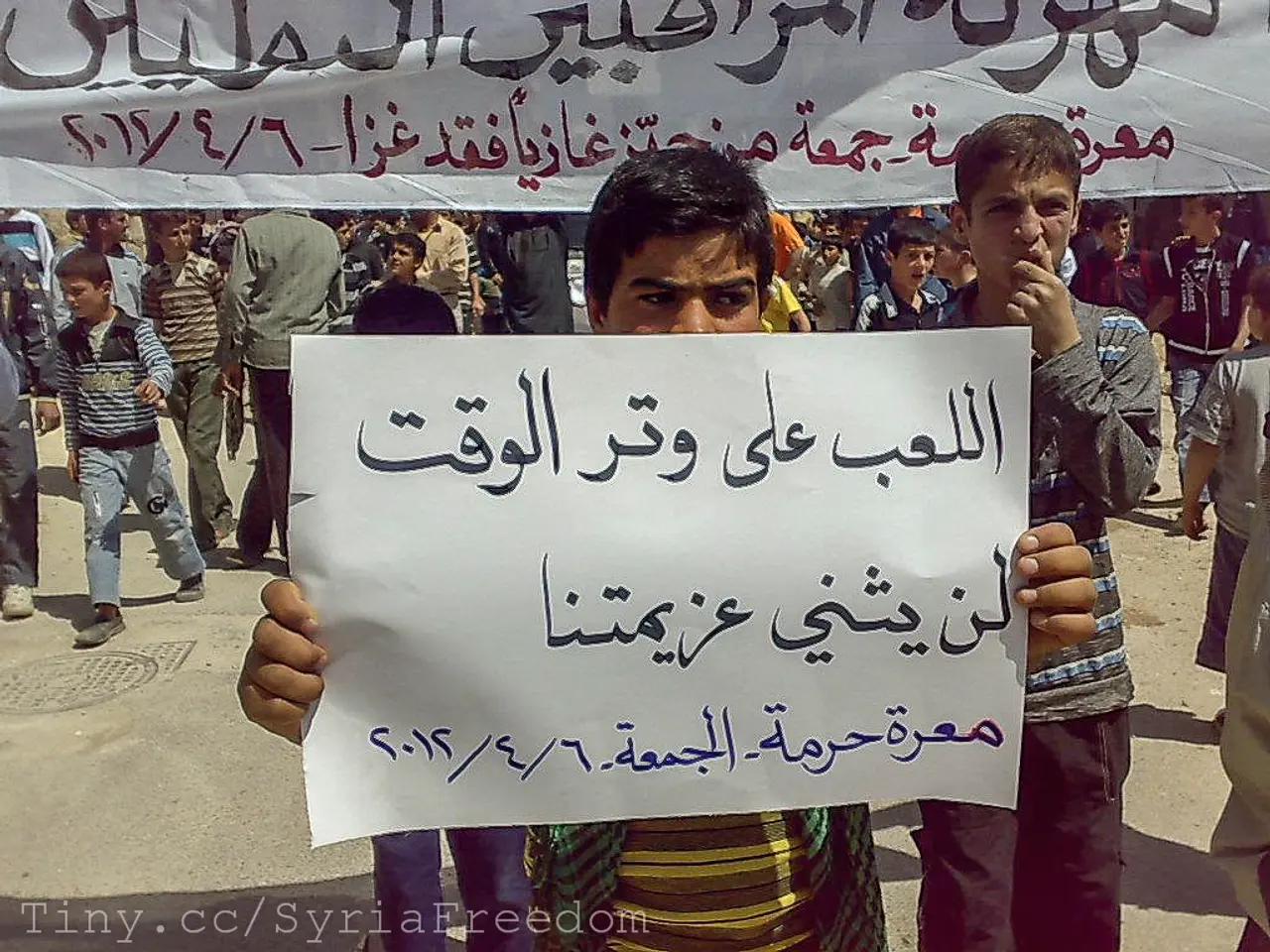Israeli authorities decide to remove the office of Attorney General
In a move that has sparked widespread controversy, the Israeli government, led by Prime Minister Benjamin Netanyahu, voted unanimously to dismiss Attorney General Gali Baharav-Miara on August 4, 2025. The decision, which is currently under judicial review, has been widely perceived as an attempt to protect Netanyahu and his allies [1][3].
The crux of the issue lies in Baharav-Miara's ongoing investigation into Netanyahu for corruption and allegations that his advisers had connections to Qatar. The Gulf emirate of Qatar, known to support the Islamic Hamas in the Gaza Strip, is at the centre of these allegations, with claims that close aides to Netanyahu were paid for lobbying activities [2].
Baharav-Miara's opposition to the appointment of David Zini as chief of the Shin Bet internal security service, citing a potential conflict of interest, further fuelled the tension [1]. This is not the first time Baharav-Miara has clashed with the Netanyahu government over unlawful measures [1].
The dismissal of Baharav-Miara has been met with resistance. The Israeli Supreme Court swiftly issued an injunction, blocking the firing, and emphasised that the procedure used by the government was inappropriate [1][2][3]. The court's injunction also prevents the appointment of a replacement for Baharav-Miara. The firing remains subject to judicial review, with the High Court of Justice scheduled to hear petitions against the government's decision before a nine-justice panel soon [1][2][3].
The role of the Attorney General includes reviewing government decisions for their legality, and the current situation has sparked concerns about the independence of the attorney general's office. Netanyahu and his allies have accused the Israeli justice system of being too powerful and interfering too much in executive decisions [1].
It is important to note that the allegations against Netanyahu's aides are not without consequence. The alleged terrorist attack on Israel on October 7, 2023, triggered the Gaza war [2]. The judicial reform pushed by Netanyahu's government, which sparked months of massive protests, has also raised warnings of the destruction of Israel's democratic balance before the Gaza war [1].
The ongoing saga between the Israeli government and its Attorney General serves as a testament to the complexities and challenges faced in maintaining the balance between executive power and the rule of law. The High Court of Justice's ruling is eagerly awaited as it will have significant implications for the future of Israel's democratic system.
[1] Haaretz [2] The Times of Israel [3] BBC News
- The dismissal of Attorney General Gali Baharav-Miara, sparked by allegations of corruption and connections to Qatar, has sparked intense debates in the realm of policy-and-legislation and general-news, with many perceiving it as a political move to protect Prime Minister Benjamin Netanyahu and his allies.
- The ongoing conflict between the Israeli government, led by Netanyahu, and Baharav-Miara has shed light on the importance of the Attorney General's role in ensuring the independence of the justice system and maintaining a balance between executive power and the rule of law, becoming a significant topic in politics and legislative discussions.







